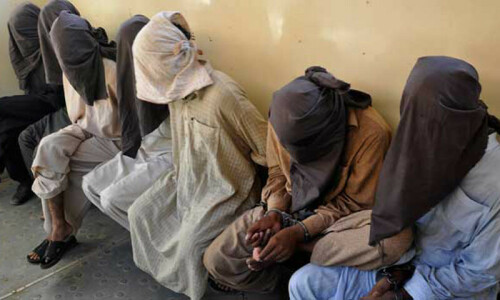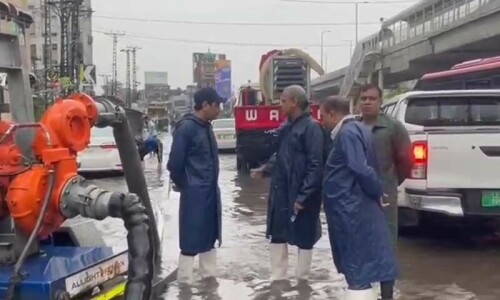THIS is with reference to the article “’Global boiling’” (June 25). The article mentioned rising temperatures across the world and the consequent deaths during the Haj pilgrimage in Saudi Arabia as well as fatalities across India. One may add the recent heatwave that has gripped most parts of Pakistan, especially Karachi where 20 deaths were recently reported over two days.
The year 2023, many might remember, was recorded as the hottest year on the planet since 1850. We, the human beings, are currently living in the first quarter of the 21st century. It may be a preponderant era of astounding progress, advancement and technological innovations, but, at the same time, it may prove to be a rubicon of ecological cataclysm. It is because we are bent on destroying the only planet we inhabit. Myriad challenges, such as overpopulation, climate change, global warming and air and water pollution, are the anticipated results of our growing, unstoppable urge for lavish lifestyles and technological development.
Unsurprisingly, instead of curbing or even controlling our cataclysmic activities, we do not even realise the fact that it is our own advancement that has dragged us to the brink of the final century. In his book, Downfall: Lessons For Our Final Century, Dr Ilhan Niaz has argued that the trouble is that hardly anybody is willing to accept that growth is the problem. “Carbon emissions, rising of toxicity, habitat loss, plummeting biodiversity, and desertification are the consequences of our reckless pursuit of more GDP,” he has very rightly stressed. The global indifference towards the serious issue of climate change is bound to cause the downfall of mankind.
Global issues need global solutions. Therefore, the issue of climate change must be addressed at both national and international levels. The adverse effects of the ecological conundrum should be mitigated. The 3R strategy of Reduce, Reuse and Recycle should be properly implemented along with a fully-planned transition to renewable energy sources. International bodies should work actively towards meeting the targets set for the reduction of hazardous emissions so that future generations may avoid — or at least delay — the impending catastrophe.
Salamat Ullah Khan
Islamabad
Published in Dawn, June 27th, 2024










































Dear visitor, the comments section is undergoing an overhaul and will return soon.